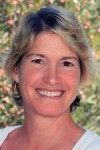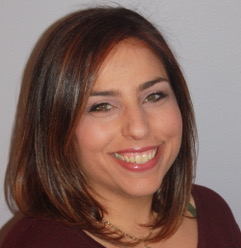

SAN DIEGO — One of the most beautiful and noteworthy things about Judaism is that we pride ourselves on living by a set of values that should, in practice, generate the best in people and community. Remember the 1975 Hebrew National beef hot dog advertisement? “We answer to a higher authority.” We strive to treat each other with kavod [respect], and it is, in fact, one of the expected outcomes that by following Jewish tradition and teachings we will naturally treat others with respect. But what happens when Jewish organizations do not pay attention to these values and lose their way in internal culture?
Enter Nicole Nevarez and Ta’amod (Stand Up). Nevarez’s husband’s new post as senior rabbi at Congregation Beth Israel precipitated the move. Newly arrived New Yorker Nevarez and her family have established themselves in San Diego with a commitment to uphold the national work begun by a partnership between the Jewish Women’s Foundation of New York (JWFNY) and the Good People Fund (GPF). The initiative housed by JWFNY addresses the sensitive and important issues necessary for a safe, respectful Jewish workplace. Ta’amod encourages and guides Jewish organizations to hold themselves to a higher standard, thereby ensuring that every individual experiences a safe, respectful workplace, regardless of whether that employee identifies as Jewish or not and no matter where they identify in Jewish practice and beliefs.
In a recent phone interview, I was quite impressed with Nevarez’ wisdom and thorough grasp of the situation. She explained to me that there was no need to reinvent the wheel, but that the best use of time, money, and resources was to take what is currently operational and build on it by offering holistic training to all workspaces using a Jewish lens.
Jamie Allen Black, CEO of JWFNY, and Naomi Eisenberger, ED of GPF, provided a natural springboard for Nevarez who was getting ready to launch her own consulting and coaching company. When they connected, Black and Eisenberger offered a post for Nevarez to come aboard as the Inaugural Founding Director. Nevarez accepted and has been making a difference ever since. After accepting the new post she found there was much to be done and welcomed the opportunity to build from the ground up in real-time with real response to the ever-evolving issues catalyzed by the #metoo movement. Having worked as a Jewish professional for over a decade and often with other Jewish organizations and institutions, Nevarez shared that she is in part deeply motivated and called to this work due to her own negative experiences and those she has witnessed of others.
Building on the work already in place, a curriculum authored by Fran Sepler, Nevarez used her background as a Jewish educator to create a training and outreach program unparalleled. Ta’amod trainers now deliver training to Jewish organizations across denominations, structures and missions. Unlike typical sexual harassment prevention “training” which tend toward legalistic and “what not to do” approaches, Ta’amod curriculum takes a much wider lens to teach, not only administrators, but everyone, across an organization with the goal to create a respectful and safe culture that intrinsically reduces the risk of gender abuse, discrimination, inequity, and harassment. These training sessions, currently offered online and previously in person, are priced so that they are within reach of the organization and flexible to meet each organization’s needs. However, this is not the only support system provided by Ta’amod. Not by a long shot!
A resource center is in place to provide the adjunct pieces and to respond to the myriad questions an employer or an employee might have. This is essential because no two organizations are identical, and while problems may be universal, solutions are not always blanket and may require specific responses. In addition, Ta’amod provides a call line for support for individuals who may have experienced or witnessed abuse, discrimination, or harassment in the Jewish communal space.
I asked Nevarez how Jewish workplaces differ from non-Jewish workplaces. While statistically, Jewish organizations are no better nor worse than other faith-based or secular organizations, she explained that often in Jewish workplaces there is a legacy mentality. These organizations may lag behind or be more reluctant to change or accept new paradigms. Further, Nevarez reported that because so many Jewish organizations are operating on shoestring budgets there is a mentality of “scarcity” endemic in every non-profit. This idea of scarcity often leads professional and lay leadership to believe that there are no resources available to allocate for the work of internal assessment and culture development.
Asked to provide a few examples of problems found in Jewish agencies, Nevarez shared the following: “Founders Syndrome CEO’s who perpetuate inequitable systems blocking the pipeline to leadership for young and often female staff are almost always older, white men.” In another example of problems particular to Jewish agencies are extreme demands on staff time and energy. Employees are expected to be available outside of work hours.
In contrast, Nevarez shared, organizations that are willing to take the leap of faith that allocation of time, money, and human resources to this work will in fact ultimately find that the commitment positively impacts their bottom line.
“While we want organizations to choose this work because it is the ‘right’ thing, we can also assure them that resultant employee engagement and retention and good reputation will save them money and improve the outcomes of their mission impact,” she said. Another struggle for Jewish organizations can be that there is a familial atmosphere and people don’t want to discuss the issues or fear that addressing such problems will make the Jewish community look bad or even increase anti-Semitic sentiment. Unfortunately, this may, and all too often does, lead to Jewish individuals becoming alienated from Jewish life altogether. Nevarez suggests that instead of withdrawing, we learn to communicate these disconnects and learn to develop a policy of intolerance toward unacceptable behavior. The resource center provides the tools to address where to go and what to do when one experiences disrespect or harassment in the workplace.
I was curious to know how Ta’amod is responding to Black Lives Matter and learned that they are actively seeking more diverse trainer cohorts. They have also engaged racial justice educators to look at the training curriculum through an anti-racist lens. Diversity is an ongoing concern and it extends beyond race and ethnicity.
While the workforce in most Jewish organizations is comprised of 70% women, only 30% of those have corporate-suite status. In those very same organizations, only 30% of the organization are men, yet they command 70% of those powerful posts, creating an unhealthy power dynamic.
Going forward, Nicole Nevarez would like to see Ta’amod become a stewardship organization for safe, respectful culture in Jewish workplaces. This includes day schools, the JCCs, nonprofits, and synagogues. She wants to actively partner in providing resources and guidance for organizations in this equitable, respectful culture. Her paradigm of benchmarking, training, and resources hopefully will obliterate the current hurdles. At present, the biggest issue is that organizations feel that they just don’t have the time for training or engaging in the self-reflective work of culture change. This claim is a common one, but experience tells Nevarez otherwise. Ta’amod has completed training programs in Atlanta, the Bay Area, New York, Chicago, Boston, and in such states as Missouri, Pennsylvania, Mississippi, and Florida, and more. Nevarez and her colleagues continue to build a presence across the country and have seen clear evidence that the direct service piece successfully creates a new way of thinking and applying tools to create a respectful culture for professionals and organizations.
For further information or to engage Nicole Nevarez and Ta’amod for training, please email nicole@jewishwomen.org and check out www.taamod.org. TA’AMOD CALL LINE: for individuals who have experienced or witnessed abusive behavior, discrimination or harassment in the Jewish workplace or communal space. Powered by JCADA. 833-760-0330.
*
Eva Trieger is a freelance writer based in Solana Beach, California. She may be contacted via eva.triger@sdjewishworld.com